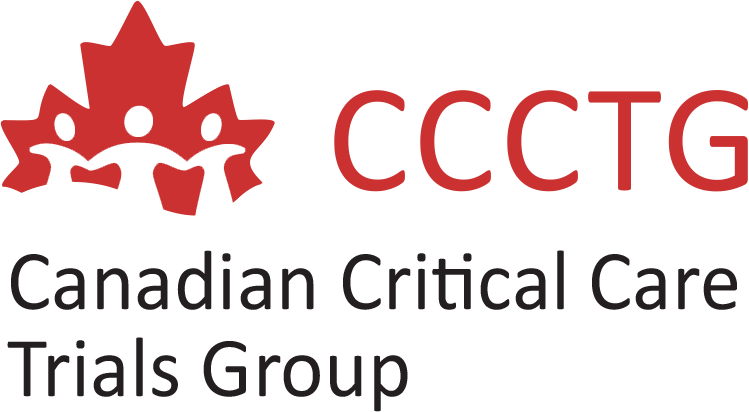David Zorko
Dr. David Zorko is a Pediatric Intensivist and Clinical Scholar, Division of Pediatric Critical Care, Department of Pediatrics at McMaster University (Hamilton, Canada). He completed his Pediatric Critical Care Medicine training at The Hospital for Sick Children (University of Toronto) in 2023. He obtained his medical degree from the University of Ottawa. He subsequently completed his Pediatrics residency in the Clinician Investigator Program at McMaster University, concurrently obtaining his Master of Science degree in Health Research Methodology (supervised by Dr. Karen Choong). Dr. Zorko's Chronic Critical Illness in Kids Research Program seeks to systematically evaluate the long-term morbidities experienced by children and families following critical illness. His other research interests include crowdsourcing and machine-learning methodologies in the conduct of systematic reviews, ICU rehabilitation, and post-PICU follow-up.
Recent work
- Shemie SD, Wilson LC, Hornby L, Basmaji J, Baker AJ, …, Zorko DJ, et al. (2023). A brain-based definition of death and criteria for its determination after arrest of circulation or neurologic function in Canada: a clinical practice guideline. Canadian Journal of Anesthesia, 70:483-557. doi: 1007/s12630-023-02431-4
- Zorko DJ, Shemie J, Hornby L, Singh G, Matheson S, Sandarage R, et al. (2023). Autoresuscitation after circulatory arrest: an updated systematic review. Canadian Journal of Anesthesia, 70:699-712. doi: 10.1007/s12630-023-02411-8
- O’Grady HK, Reid JC, Farley C, Hanna QEB, Unger J, Zorko DJ, et al. (2023). Comparator groups in ICU-based studies of physical rehabilitation: a scoping review of 125 studies. Critical Care Explorations, 5(5): e0917. doi: 10.1097/CCE.0000000000000917
- Zorko DJ, McNally JD, Rochwerg B, Pinto NP, O’Hearn K, Almazyad MA, et al. (2023). Defining pediatric chronic critical illness: a scoping review. Pediatric Critical Care Medicine, 24(2):e91-e013. doi: 10.1097/PCC.0000000000003125
- Zorko DJ, McNally JD, Rochwerg B, Pinto NP, Couban R, O’Hearn K, Choong K (2021). Pediatric chronic critical illness: a protocol for a scoping review. JMIR Research Protocols, 10(10):e30582. doi: 10.2196/30582
- Choong K, Zorko DJ, Awojoodu R, Ducharme-Crevier L, Fontela P, Gilfoyle E, et al. (2021). Prevalence of acute rehabilitation for kids in the PICU: a Canadian multicenter point prevalence study. Pediatric Critical Care Medicine, 22(2):181-193. doi: 10.1097/PCC.0000000000002601
- Zorko DJ, Gertsman S, O’Hearn K, Timmerman NP, Ambu-Ali N, Dinh T, et al. (2020). Decontamination interventions for the reuse of surgical mask personal protective equipment: a systematic review. Journal of Hospital Infection, 106(2):283-294. doi: 10.1016/j.jhin.2020.07.007
- Zorko DJ, Reid JC, Unger J, McCaskell D, Saddik M, Choong K, Kho ME (2021). Measurement and reporting of physical rehabilitation interventions in pediatric critical care: a scoping review. Disability and Rehabilitation, 43(23):3417-3424. doi: 10.1080/09638288.2020.1735538
In my own words
I am a pediatric intensivist passionate about improving outcomes for pediatric critical care survivors and their families. Combining traditional and novel research methodologies, my research program (CCI-Kids) focuses on the systematic evaluation of long-term morbidities of children following critical illness and seeks to define pediatric “chronic critical illness (CCI).” I believe in the power of diverse research collaborations and unique partnerships to mobilize a national and international community to tackle these and other challenges in pediatric critical care. I work with other clinician-investigators and AI specialists to improve the conduct of literature reviews using crowdsourcing and machine-learning methodologies, and evaluate how this can improve knowledge-translation for key clinical questions and diversify the nature of research collaborations. Ultimately, we must think differently in order to transform new knowledge into scalable programs and implemented best practices that provide unprecedented value for our patients and their families.
